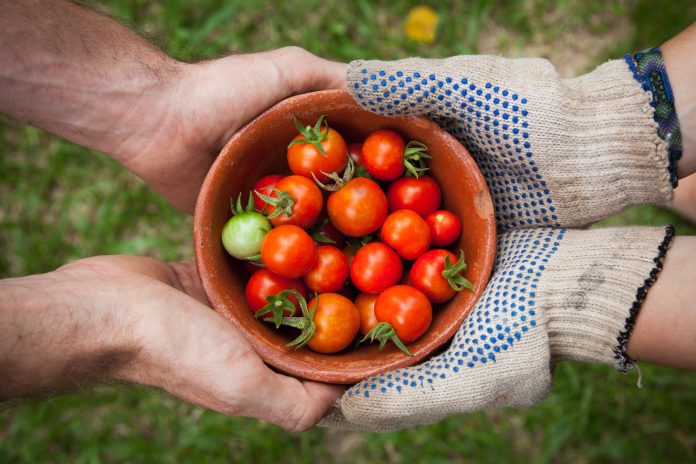Spring is finally here, and that means it’s the perfect time to roll up your sleeves, put on gardening gloves, and dig in the dirt. Gardening is not only a great way to beautify your yard and grow your own food, but it offers many health benefits for seniors, both physically and mentally.
Gardening is an excellent way for seniors to engage in physical activity, vital for maintaining good health and preventing chronic disease. According to the National Institute on Health (NIC), gardening requires regular and continuous care, which provides opportunities for increased physical activity. Engaging in physical activity in the garden can help prevent osteoporosis and reduce the risk of some cancers, Type 2 diabetes, depression, and heart disease. So, not only are you reaping your harvest, but you are reaping the added benefits of staying active.
Gardening has mental health benefits as well. You can experience a sense of well-being as you nurture and care for your plants. You can feel a sense of accomplishment when you harvest a dinner salad from lettuce you grew as seeds, finally grow prize-winning hydrangeas propagated from stem cuttings, or plan the perfect English garden spilling with roses and delphiniums. Gardening offers a therapeutic effect that can help to reduce stress, anxiety, and depression. And as your garden grows, so will your pride and a sense of purpose.
Gardening can be physically demanding, especially for those with mobility or balance issues. Fortunately, there are ways to make your gardening experience easier and more accessible. One way is to use raised garden beds, which can be built at a comfortable height to work on without bending or kneeling. Raised beds, vertical garden planters, and taller planters can reduce the strain on your back, making your time outdoors comfortable and enjoyable.
Look for gardening tools that will help make gardening more accessible and less painful. Tools with larger grips or upright ergonomic handles help seniors with arthritis or limited hand mobility grip better. Lightweight tools are designed to reduce muscle strain and make gardening less tiring. To protect your back from stooping, taller tools, like weeders and long-handled trowels, allow you to work upright and still reach the ground. And brightly colored handles can make tools easier to spot.
Knee pads are a great option for working on a flower bed by providing cushioning and support to reduce the risk of injury. A comfortable stool or chair will help you work longer without having to bend or kneel. And a watering system is key, so you do not need to carry a heavy watering can or drag an awkward hose around the garden. If you have difficulty getting enough leverage to turn the water on and off, easy-turning hose faucet grips fit on top of t-handle, round, and oval faucet handles for a larger gripping surface.
The sun is shining, and you can’t wait to get your hands in the dirt. But before you do, take a few precautions to stay healthy and safe:
1. Wear sunscreen
Don’t forget to put on sunscreen before you head out into the garden. It will protect your skin from the harmful effects of the sun, especially on overcast days or during peak hours when the sun is strongest.
2. Stay hydrated
Drink plenty of water to avoid dehydration, and for a real thirst quencher, add a little mint or lemon from your garden.
3. Find the shade
Try to avoid direct sunlight and work in the shade whenever possible to reduce the risk of sunburn or heatstroke.
4. Take a break
If you feel tired or uncomfortable, you need to avoid over-exerting yourself By taking a break. Overdoing it can lead to injury.
5. Wear protective clothing
Long-sleeved shirts and long pants can protect you from scratches and insect bites.
6. Use insect repellent
Apply an insect repellent to avoid bug bites and stings, which can be especially dangerous for seniors who may be allergic.
7. Lift with your legs
Use proper lifting techniques when carrying heavy objects, like bags of soil or a full watering can, to avoid strains and injury. Or better yet, use a wheelbarrow or garden cart.
8. Plan a garden layout
By planning your layout ahead of planting, you can avoid the fatigue of walking back and forth often or the tripping hazard of uneven terrain, which can lead to unexpected falls.
9. Get help
Ask for assistance from family members, friends, or neighbors to help with larger projects. Or hire a gardener to get you started or to fill in the gaps you cannot manage yourself.
10. Consult with a doctor
It’s always a good idea to consult with your doctor before starting a new gardening routine if you have any health concerns or are taking medications that may affect your ability to garden safely.
Gardening is not only a great hobby as the weather warms up, but it will get you moving and provide many benefits for the body and mind. Planning ahead, getting the right tools, and knowing your limitations will make your gardening season more enjoyable. Whether you are a seasoned green thumb or newer to gardening, get your hands dirty and reap the benefits you sow this spring season.
























